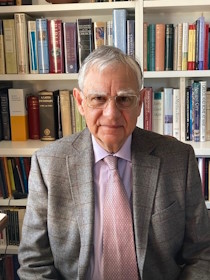
Stephen Barber
I took a degree in English Literature and then trained as a social worker, retiring in 2016. Classical music has always been part of my life. I play the piano and I used to play the clarinet, from which came an interest in wind instruments. The first recordings I knew were my father’s 78s of Beethoven symphonies and some Mozart and Brahms. The first two records that I owned were of Beethoven sonatas and Stravinsky’s Rite of Spring. I started learning about music from some volumes of Tovey’s essays which we had in the house, and I still turn to him. He basically taught me about music from Bach to Brahms. Not long after came Hartog’s European music in the twentieth century, which started me off on discovering more recent music. Then there was Wagner and I remember the excitement with which we greeted the arrival of each instalment of the Solti Ring.
It is difficult to convey how hard it was in the 1960s and 1970s to locate and hear recordings of recent and contemporary works. Vinyl LPs were fragile and expensive and composers now accepted as classics, such as Bartók, Stravinsky, the Second Viennese School and Messiaen, were hard to find. Now works such as Strauss’s Elektra, Schoenberg’s Erwartung and Berg’s Wozzeck are for me both examples of expressionist horror and also dear old friends. I have discovered early music and have a particular affection for Tudor Latin-texted church music, Jacobean viol fantasias and the French baroque.
Work pressures and the cost meant that I could not often go to concerts, operas and ballets, though, looking back, I seem to have gone to a fair number. However, BBC Radio 3 and recordings have always been the way I discover music and some of my favourite composers and works I have never heard live in the concert room. These include the Franck string quartet, anything by Chausson or Frank Martin and even some Beethoven symphonies and quartets. I am particularly drawn to works off the beaten track and, of course, for these, recordings are ideal.
Outside music I continue to be a student of English Literature and have a particular interest in the work of Charles Williams, best remembered as one of the Inklings circle around C. S. Lewis. I also attend classes reading Latin literature and some day will take up ancient Greek again.
Marc Bridle
Marc Bridle was editor of Seen & Heard from 2001 to 2006. Although he studied the violin from an early age, later graduating to the double bass – being gifted with long arms and big hands – he never developed into a virtuoso string player. Educated at St Andrews and Cambridge Universities, he studied Classics and Philosophy, before beginning a career in journalism and the arts, which he still works at to this day. Over the years he has contributed reviews, interviews and articles to many newspapers and magazines, both in print and Internet media, on subjects as diverse as music and civil rights. He moved to the United States and Canada in 2006, where he lived until 2011, and where he regularly reviewed concerts on Salt Spring Island.
For Marc Bridle music begins with the Eroica. Musical passions include Bruckner and Wagner – both of whom he resembles temperamentally. Happiest in smoke filled Jazz clubs, he once attended more concerts than is healthy for anyone; a 10-year Mahler sabbatical soon followed.
His interests include collecting political cartoons, music photographs, modern art and a constantly expanding collection of Japanese classical CDs. He is currently learning Korean. He continues to write for Seen & Heard and is a regular contributor to Opera Today. He lives in London with his partner and two Steiff bears, Tristan and Parsifal, and is still hoping to publish his first volume of poetry.
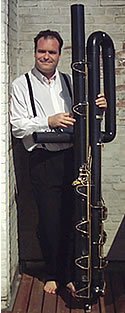
Dominy Clements
Dominy Clements was born in Newport, Monmouthshire in 1964. He trained as a flautist through the excellent South Wales music education system, and subsequently at the Royal Academy of Music in London. He studied flute with Gareth Morris and Richard Taylor, and composition with Christopher Brown and Edward Gregson, following this with two years of study with Louis Andriessen and Gilius van Bergeijk at the Royal Conservatoire in The Hague. He has won several awards as a composer and is published by Donemus, and he has had three operas performed in Estonia in recent years. He currently works at the Royal Conservatoire as manager of the Podiumbureau and Career Development Officer, and as a freelance writer and musician in the Netherlands and abroad. He performs with trio Lautareasca and plays subcontrabass flute (see photo) with flute octet BlowUp!.
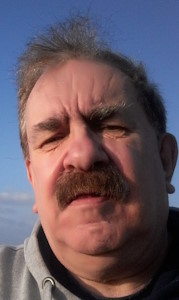
Paul Corfield Godfrey
Paul Corfield Godfrey was born in London and after a period of residence in Ireland now lives in Wales, studying composition and conducting at various times with Alan Bush and David Wynne. His compositions include four symphonies: various orchestral, chamber and instrumental works: songs and choral works: operas, including The Dialogues of Óisin and Saint Patric and Arcturus, both performed in Cardiff and elsewhere: and a cycle of epic scenes based on J R R Tolkien’s posthumous novel The Silmarillion, the largest work written in Wales in the twentieth century, which has been recorded and released in a set of ten CDs. His cycles of both The Lord of the Rings and The Hobbit are currently being recorded for release in 2025-26.Other operas have also now been issued, including The Nightingale and the Rose after the fable by Oscar Wilde, and Blithe Spirit after Noel Coward. Many other works have been performed in London and elsewhere throughout the UK, Hungary, America, Australia and New Zealand, and videos of many of these are available on YouTube. His manuscript scores are lodged at the National Library of Wales, Aberystwyth. He has appeared as a performer both on radio and television.
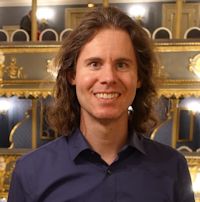
Daniel Floyd
I view the ‘canon’ of Classical music as a descriptive, rather than prescriptive, basis for exploring music and making well-informed personal choices. A music, financial, and daily news journalist, I earned a doctorate based on research about how literary hierarchies developed in the seventeenth and eighteenth centuries.
My musical interests include Italian and German Baroque, Viennese Classicism, and early Romanticism. Mozart, my greatest operatic love, had an extraordinary sense of structure, modulation, and dramatic intensity that enraptures throughout every stage work from Die Schuldigkeit des ersten Gebots (1767) to Die Zauberflöte (1791).
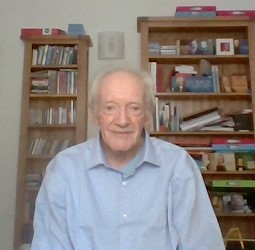
Michael Greenhalgh
I reviewed for Records and Recording (1972-78) and International Music Guide (1979-82). I have reviewed for MusicWeb since 2006. In 2013 I gained a DPhil from Oxford University for a thesis on Montagu Slater and Benjamin Britten’s Peter Grimes. In 1980 I was awarded a Fellowship of the Library Association for a complete discography of Purcell. In 1992 my complete discography of Byrd was published in Byrd studies (Cambridge University Press) and supplements have followed. My favourite composers are, in alphabetical order, Bach, Beethoven, Britten, Byrd, Mozart, Purcell and Schubert. I divide my time between Aldeburgh and Oxford.
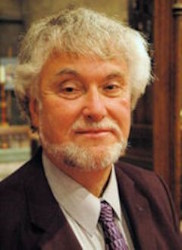
Gary Higginson
Gary was born in West Bromwich in December 1952. He was singing from an early age and having sung in various church choirs became a first study singer at The Guildhall School of Music with piano as a second study and also composition first under Edmund Rubbra and the with Patric Standford and Buxton Orr. Later he did an MA at Birmingham University in Composition and Analysis under John Joubert. Having been composing since the age of 11 his Opus 1 dates from his 18th year and has since written over 210 works in all genres including two Symphonies, two children’s operas, five string quartets and many vocal and orchestral works. He has also produced a considerable amount of educational music and he has over fifty works in print with for example, Fand Music, fagus-music and Peacock. He has been reviewing for Music Web since 1999.
Paul RW Jackson
I was born in Newcastle upon Tyne quite a while ago. I grew up in the time when pupils at state schools could get two private instrumental lessons a week and from age 8, I learned piano and age 12 I played tuba. Music is for me a transformative art and showed me how the world could be opened up to a boy from a working-class background. I am not sure such opportunities are now available in the UK.
For over 40 years I worked in the professional world of performing arts, primarily music and dance or dance and music or both. In music my teachers have included John Cage, Sir Malcolm Arnold, David Bedford, and Virko Baley. In dance my teachers included Bertram Ross, Viola Farber and Kazuko Hirabayashi. I worked professionally for many years as a pianist mainly with dance including Ballet Rambert and London Contemporary Dance Theatre. I accompanied most of the leading figures in contemporary dance including Martha Graham, Merce Cunningham, Robert Cohan, Richard Alston, Siobhan Davies etc. When I lived in America, I was pianist with the Nevada Symphony Orchestra particularly in their contemporary music series.
I began teaching early in my career working at the Arts Educational Schools, Islington Arts Factory, Central School of Ballet and the CFPD in Poitiers, France. At university level I was head of music at the University of Northumbria. In The USA I taught at the University of Nevada, Las Vegas, Shenandoah University and the University of Wisconsin, Eau Claire. Until taking early retirement in 2017, I was Reader in Choreography and Dance at the University of Winchester.
I have written extensively on dance and music and in 1997 was awarded the Chris de Marigny Dance Writers Award. I was a regular contributor to dance journal Dance Now, where I wrote ground breaking articles on British Ballet music. I am the biographer of two of the leading figures in 20th century art, Oscar winning composer Sir Malcolm Arnold and the founding father of British contemporary dance Sir Robert Cohan CBE, with whom I worked closely for the last 10 years of his life.
I have extensive experience of trustees and governance. For 5 years I was an Artistic Assessor for dance and music for Arts Council England. From 2021- 23 I was a councillor in Berwick upon Tweed and a trustee of the Guild of Freemen of Berwick. Currently I am governor of Northumbria Health Care Trust and a member of the board of balletLORENT. Until 2024 I was chair of the Berwick & Cancer Support Group, the leading Cancer based charity in North Northumberland.
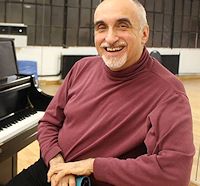
Steve Vasta
After receiving a liberal arts degree at Columbia University, Stephen Francis Vasta has spent his career as a conductor, vocal coach, and keyboardist, both with companies in and around his native New York and with prominent regional performing arts organizations. His extensive New York credits include conducting for the Vineyard Theatre Opera, the Brooklyn Repertory Opera, the Light Opera of New York, and, most recently, the Lighthouse Opera Company, including Don Giovanni (inaugural production), La serva padrona and La Traviata. Elsewhere, he has conducted at Berkshire Opera in Massachusetts; Indiana’s Ball State University, as Assistant Professor of Theatre; and as a guest artist at the University of Arkansas, Fayetteville. He was also chorus master for the New Jersey Association for Verismo Opera for two seasons, and has served as assistant to Sarah Caldwell, Cal Stewart Kellogg, Anton Coppola, and Gunther Bauer-Schenk. On the concert platform, he has made guest appearances with the Filharmonie Hradec Kralove, Czech Republic.
Mr. Vasta is equally adept in musical theatre, appearing with companies including the Cape Playhouse, Massachusetts; Godspell at the Edinburgh Fringe Festival; Alabama Shakespeare Festival; and Ball State University (again), with the Department of Theatre and Dance. He was sole pianist for the production of “Oh! Coward” at Irish Rep in New York, and conducted the 1992-3 international tour of “Peter Pan” throughout the U.S., Canada, and East Asia.
As a classical accompanist, Mr. Vasta has appeared at New York’s Weill Recital Hall and the Smithsonian Institution in Washington, DC., and has given vocal master classes for the Arkansas chapter of the National Association of Teachers of Singing (NATS). He also supplied harpsichord continuo for Vineyard Theatre Opera, the Bronx Opera, and the North Arkansas Symphony, and was the staff pianist for the International Workshop for Conductors for two years.
He has been reviewing professionally since 1993, when Stereophile magazine tapped him for a repertoire survey (Mahler’s Second Symphony) on six weeks’ notice. He recently returned to the magazine after an extended absence, contributing in the meantime to Listener magazine, Opera News, and several websites (including MusicWeb!). Currently, he serves on the faculty of the American Musical and Dramatic Academy (AMDA) as principal accompanist for the voice program.

Raymond Walker
Raymond J Walker of Wilmslow, Cheshire has been a reviewer for 20 years and with a love of the theatre specialises in Victorian composers and lesser known operatic works.
He is Chairman and Director of Victorian Opera Northwest, a group formed to make recordings of lesser known British composers, like MW Balfe and WV Wallace. Their discs have been mainly conducted by Richard Bonynge. Other conductors have been Ronald Corp and Philip Mackenzie. With an interest in theatre, Walker appreciates recordings where technical aspects have been given sensitive consideration to heighten the appreciation of the listener.


















